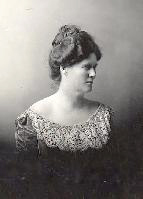
Aug. 17, 2016 – Practicing in an area with limited access to legal services is a challenge, especially for new lawyers struggling under the burden of law school debt.
To help new lawyers who commit to working in underserved areas, the Wisconsin Law Foundation recently established the new Belle Case La Follette Awards, to provide $2,000 each to three recent law school graduates who represent underserved populations – people who have difficulty affording legal services and those in rural areas with limited access to legal services.
“The Wisconsin Law Foundation is committed to recognizing and awarding newer attorneys who make a commitment to serve particular populations whose legal needs have been historically unmet or are underserved, or who work in geographical areas that are underserved,” says Cheryl Daniels, Wisconsin Law Foundation president.
Recognizing Those Serving the Underserved
These awards recognize three recent law school graduates who are State Bar of Wisconsin members and practicing in Wisconsin, and who represent underserved populations.
“The number of attorneys in northern counties retiring without anyone to take over their practices is on the rise. Judges in some counties report there is only one practicing attorney,” said Kevin Lonergan, chair of the Foundation’s Awards and Scholarships Committee. “The Foundation acknowledges this issue and supports those who are working to fill the need.”
Who is Belle Case La Follette?
 A lawyer, journalist, teacher, and activist in women’s rights, Belle Case La Follette (1859-1931) was the first woman graduate from the U.W. Law School (1885) – attending the school as a married woman with a young child. La Follette was a prominent figure in the women’s movements of the early 20th century as well as the supportive wife of Robert “Fighting Bob” La Follette Sr., Wisconsin congressman, governor and senator, and presidential candidate. At the time of her death, The New York Times called her "probably the least known yet most influential of all the American women who had to do with public affairs in this country."
A lawyer, journalist, teacher, and activist in women’s rights, Belle Case La Follette (1859-1931) was the first woman graduate from the U.W. Law School (1885) – attending the school as a married woman with a young child. La Follette was a prominent figure in the women’s movements of the early 20th century as well as the supportive wife of Robert “Fighting Bob” La Follette Sr., Wisconsin congressman, governor and senator, and presidential candidate. At the time of her death, The New York Times called her "probably the least known yet most influential of all the American women who had to do with public affairs in this country."
La Follette not only has the distinction of being the first woman graduate from the U.W. Law School, but her success in balancing family life with an active and distinguished public life is a powerful example for all modern lawyers.
The awards reflect the spirit of Belle Case La Follette, says Daniels. “Belle wasn’t just Governor Bob La Follette’s wife and First Lady of Wisconsin. As the first woman to graduate from U.W. Law School, she spent her life serving the public. When she saw a need she filled it -- just as the award winners are filling a very important, current need here in Wisconsin.”
Each award recipient will receive $2,000 to support his or her practice. They also will be recognized at the 2016 Wisconsin Law Foundation Fellows Recognition Dinner in Milwaukee on Oct. 18.
The awards are made possible by generous contributions from the members of the Wisconsin Law Foundation and the State Bar of Wisconsin Senior Lawyers Division.
The Foundation is a 501(c)3 charitable and education organization that serves to promote public understanding of the law, improvement of the administration of justice and other law-related public service through funding of innovative and creative programs that improve the vision of the American justice system.
How to Apply – Deadline is Sept. 12
These awards, given for the first time in 2016, recognize three recent law school graduates who are State Bar of Wisconsin members and practicing in Wisconsin, and who represent underserved populations, such as those who have difficulty affording legal services or those who live in rural areas.
Each award recipient will receive a $2,000 award to support his or her practice.
Applications are due Sept. 12. One award each will be given to a graduate of the U.W. Law School, of Marquette University Law School, and of an out-of-state law school who is practicing in Wisconsin. Applicants must be sworn in as Wisconsin lawyers between Jan. 1, 2012, and Dec. 31, 2015.
The selection committee will consider a number of factors, including the applicant’s professional reputation and achievements, as well as how the applicant represents underserved populations.
More information and to download the application.
Thinking of Moving to a Rural Practice?
If you are considering moving to a rural area to practice law, sign up for the Greater Wisconsin Initiative Rural Bus Tour, heading to Rhinelander and Marinette on Oct 7-8. For more information, see the article in this issue of InsideTrack.
